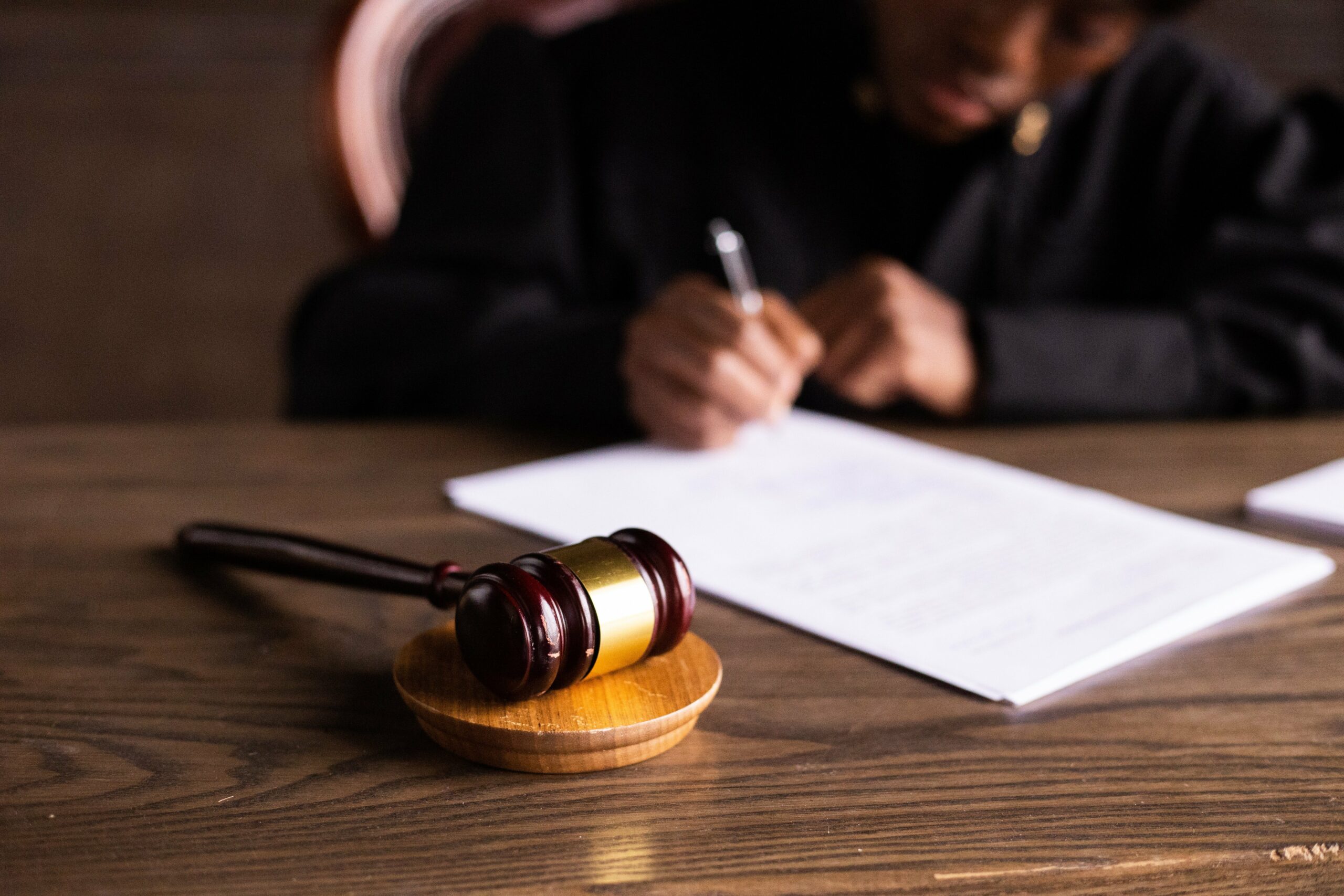Month: March 2023
How to Use an Interpreter during a Deposition

Depositions are a crucial part of the legal process, and as a witness, it is important to be able to communicate effectively to ensure the accuracy of your testimony. An interpreter is necessary when the witness and the attorney do not share the same language.
In this blog, we will discuss how to use an interpreter during a deposition in an effective manner.
1. Choose a Qualified Interpreter
Choosing a qualified interpreter is crucial to a deposition. The interpreter should be fluent in the required languages and must be able to accurately interpret the testimony in both directions. The interpreter should also have a solid understanding of legal terminology.
2. Establish Ground Rules
Before the deposition begins, the attorney should establish ground rules with the interpreter. This includes informing the interpreter that they are not there to provide legal advice, only to interpret the testimony accurately. The attorney must instruct the interpreter to interpret everything that is said, including any comments the witness makes.
3. Begin with an Oath
Once the interpreter has been chosen and ground rules have been established, the deposition can begin. Before the witness begins to testify, they will be sworn in, and the interpreter will be asked to interpret the oath.
4. Speak Slowly and Clearly
When testifying through an interpreter, it is important to speak slowly and clearly. This allows the interpreter to accurately translate the testimony without missing any important details. Witnesses should avoid using jargon, slang, or technical language that may be difficult for the interpreter to translate.
5. Avoid Interruptions
It is necessary to avoid interruptions when testifying through an interpreter. Witnesses should wait until the interpreter has finished translating before speaking again. Similarly, attorneys should avoid interrupting the witness or the interpreter during the deposition to ensure a smooth hearing.
6. Use Non-verbal Communication
Witnesses should use hand gestures, facial expressions, and other nonverbal cues to convey their testimony. Attorneys should also pay attention to the witness’s body language and facial expressions, as that may indicate any misunderstanding during translation.
7. Clarify Misunderstandings
If the witness or the attorney suspects that the interpreter has misunderstood something, it is crucial to clarify the misunderstanding immediately. The witness or attorney should ask the interpreter to repeat or rephrase the translation until it accurately reflects the witness’s testimony.
Final Words
Language barriers can pose a significant challenge when it comes to litigation outside of one’s home country. The case’s success can hinge on finding a competent interpreter to help navigate these language differences. In fact, the choice of an interpreter can make all the difference between a successful outcome and a disastrous one. An experienced, professionally certified interpreter can play a vital role in ensuring that your international deposition runs smoothly without any undue stress or confusion.
Legal Media Experts is here to assist you in overcoming any obstacles you may encounter during the process. Our team of interpreters is well-versed in multiple languages, making us the perfect choice for you! We’ll guide you through the entire process, from start to finish, providing top-notch interpreting services to ensure that the deposition runs smoothly. Contact us now!
The Role of a Court Reporter

Whether you realize it or not, the legal system would not function without a court reporter. They are essential in ensuring that court proceedings, depositions, and other legal events are correctly transcribed and recorded. Let’s review the function of a court reporter and the significance of their work in maintaining the fairness of legal proceedings.
What Does a Court Reporter do?
A court reporter is in charge of writing up a verbatim account of court proceedings. They record every word said in a proceeding, including testimony, arguments, and decisions, using a stenotype machine or voice recognition software. To ensure that they record every word said, court reporters need to be able to type quickly and accurately.
In addition to recording the proceedings in writing, court reporters are in charge of making sure that the record is accurate and comprehensive. This might entail making statements more explicit or, if necessary, requesting clarification. They could also point out any potential problems or contradictions in the proceedings for a judge or lawyer to look into.
Court reporters are in charge of finalizing the transcript, checking for accuracy, and delivering it to the proper individuals. Attorneys, judges, and other parties with an interest in the case may be included in this list of recipients.
Why is the Role of a Court Reporter Important?
If a case is appealed, the appellate court will examine the original proceedings’ transcript to look for any legal mistakes. Additionally, the transcript is used by lawyers to prepare for trial, judges to make decisions, and litigants to make sure the record is complete and accurate.
It would be difficult to ensure that legal proceedings are accurately recorded without the work of court reporters. The likelihood of mistakes and omissions in the record would be significantly higher, which could result in a number of legal issues and delays.
With the popularity of remote proceedings, the function of court reporters has assumed an even greater importance. Court reporters have had to adjust to new technologies and methods of capturing the record as many courtrooms have switched to virtual hearings and depositions. They are crucial in preserving the integrity of the legal system and ensuring that remote proceedings are accurately recorded.
What Skills Does a Court Reporter Need?
Several skills are required to succeed as a court reporter. These include:
- Excellent typing skills: Court reporters must be able to type at a high speed with a high level of accuracy.
- Attention to detail: They must be able to pay close attention to what is being said to ensure that they capture every word accurately.
- Flexibility: These individuals must also be able to adapt to changes in proceedings or technology quickly.
- Professionalism: Court reporters need to maintain a high level of professionalism and neutrality throughout the proceedings.
- Confidentiality: Finally, a court reporter must maintain confidentiality and not share any information from the proceedings with unauthorized parties.
For judges, attorneys, and other legal professionals involved in the case, a court reporter’s work guarantees the maintenance of an accurate and comprehensive record of court proceedings. With the popularity of remote proceedings, the role of court reporters has become even more significant because they are essential to maintaining the integrity of the legal system. Although court reporters’ efforts frequently go unnoticed, the efficient operation of the legal system depends on them.
Legal Media Experts offer reliable legal media services and litigation support. We have worked on cases all across the US. Get in touch with us today to find out more about our services!
Tips for an Effective Remote Deposition

Remote deposition proved its mettle during the COVID-19 pandemic, and swiftly established itself as a standard of the pretrial discovery procedure. Even with the relaxation of COVID regulations, video-conferenced depositions still predominate due to cost-savings for the client, efficiency for the busy litigator, and a million favorable outcomes.
Keep reading to find out some of the top tips you can use for an effective deposition.
1. The Right Virtual Background
Many depositions are videotaped in addition to being typed up, and these videos may eventually be shown to a jury. Clocks, family pictures, or other pieces of art could distract from the witness’s evidence. If required, think about employing a credible-looking virtual background. Likewise, remove family members and pets from the area to reduce distracting background noise.
2. Keep Your Exhibits Handy
If you intend to use exhibits during your questioning of the witness, have them ready and open in the order that you intend to use them. By doing this, you will save time during the deposition by not having to open and close files. Having the relevant documents prepared will help you in regaining focus if you fall off course with the witness.
3. Remote Stipulation
If your state requires a stipulation to allow the court reporter to conduct the deposition remotely or if your state has introduced its own bill to permit remote depositions, be cautious to confirm your local rules. The deposition notice should specify the online platform, how it will be used, the appropriate link, and the required password. It is also recommended to order the chat feature of the video conferencing system to be disabled and to prohibit any private off-the-record contacts until the deposition is concluded.
4. Perform a Test Run
You must conduct a test run well in advance to prevent any embarrassing, potentially damaging errors during the actual discovery with opposing parties. This is similar to making sure all parties have the necessary electronic documents. Your organization should conduct a thorough test run before the big game to remove stress and compel you to solve any problems.
Get accustomed to the conferencing software.
Determine that your background and lighting are appropriate.
Provide feedback on your scripted directions.
Make sure everyone is equipped with dependable internet access and the required software.
5. Be Mindful of your Audio
Consider your microphone to be live at all times. Assume that you can be heard even if your microphone is highlighted in red or crossed out on the screen. Your microphone might still be active if you close the laptop and have a connected monitor. Be cautious while having background conversations. If you are not muted, the opposing counsel can still hear you even if they have turned off their video and are muted. Also, ensure all listening devices are turned off because they could accidentally record your conversations if the word that awakens them is heard.
6. Train Each Other
Subordinate attorneys conducting and defending remote depositions must adhere to the ethical guidelines, and supervising attorneys must take reasonable steps to ensure this. It’s also a good idea to speak with junior attorneys about any other issues, solutions, or concerns. They might present an angle you had yet to think of.
The ability to conduct a successful remote deposition is now more crucial than ever and could be a key professional differentiator in the future.
Legal Media Experts can help you overcome these obstacles by providing expert court reporters, legal videographers, and support personnel familiar with all the most recent technology and software. We’ll work with you to make sure your remote deposition is effective and successful. To find out more, contact us today!
Exhibit Sharing Over Zoom with an Exhibit Tech

Zoom has so many capabilities, but are you using it to its fullest capabilities? Our Zoom techs are trained on how to highlight, zoom in, point, or create text for your exhibits. They have the ability to do this during the depo onsite or remotely. Legal Media Expert’s videographers are able to present and edit your exhibits live over Zoom, and all it takes is a few easy steps on your part. Call now to find out how to best present your exhibits during your next Zoom deposition, 800-446-1387.